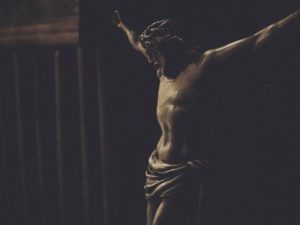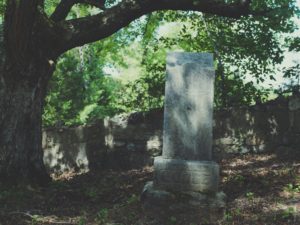“So the women hurried away from the tomb, afraid yet full of joy, and ran to tell his disciples. Suddenly Jesus met them. ‘Greetings,’ he said. They came to him, clasped his feet and worshiped him.” (Matthew 28:8,9 NIV)
This Sunday is the strangest Easter since the first one. Christians have long assembled to remember Jesus’ death and resurrection, even in times of persecution, war, famine, and yes, even plague. But there will be essentially no in-person gatherings this year.
Thus, this year will be very much like the first Easter. Then, as now, Jesus’ followers found themselves in a moment of fear and confusion, grief and loss. Then, as now, there were no crowds to witness the victory of the morning, neither in the humblest of churches, nor in the grandness of St. Peter’s Basilica in Rome. Like the first Easter, Jesus’ triumph is not a spectacle, but a quiet, private day.
Indeed, the actual moment of resurrection was in the tomb, hidden from human eyes. Whether as a flash or a slow awakening, Jesus’ body was transformed in mystery.
His emergence was similarly obscure. It seems that his mourners had not yet arrived, and the guards posted to prevent tomb break-ins could do nothing about someone breaking out. But they did not actually witness Jesus’ exit either, for they had fainted at the sight of an angel sent to reveal the tomb’s vacancy.
When Jesus does finally present himself as alive, it is to his female friends. If he was concerned about making a point, Jesus could have chosen others as his initial witnesses, for in court a woman’s testimony was invalid. Yet it is to these “unimportant” people that Jesus graciously goes first.
Like the first Easter, Jesus’ triumph is not a spectacle, but a quiet, private day.
Shortly after, Mary Magdalene is twice invited to explain her tears, first by an angel and then by Jesus himself. Even though this is Jesus’ big day, there is room for her emotions. Her crying and confusion does not cause offense, but adds to the beauty of the morning, as Jesus gently calls her by name.
Jesus spends the bulk of his resurrection day walking with two obscure disciples on the road to Emmaus, patiently listening to their concerns and then demonstrating what has happened through Scripture, rather than brandishing his identity.
Jesus continues in patience, waiting a few more hours before reuniting with his eleven core disciples, as the other two rush back from Emmaus. It seems that Jesus wanted to gently provide a series of clues for these friends that he is alive. And again gently, when he does stand among them, he offers peace and reassurance, unhindered by their fearfully locked doors.
Jesus never flaunts his return to those who killed him. He doesn’t pound on Pontius Pilate’s door, nor astound the Jewish ruling council by striding into a meeting. He is not interested in showboating, but in humility.
Perhaps this Easter you are like the women who came to the tomb, feeling insignificant, and not worth Jesus’ attention. Fear not! Christ is eager to reveal himself to you.
Maybe you are forced to celebrate Easter as alone as Mary Magdalene was. May you hear Jesus call your name, even if your lonely tears initially prevent you from recognizing him.
Are you travelling, perhaps nervously? Fear not! Jesus is willing to walk the whole way with you, even as you take your precautions.
Perhaps you and your family find yourself frustrated at being stuck behind closed doors. Fear not! Jesus is still among you to offer his peace, right where you least expect him. Closed doors are no barrier to him.
Or maybe you are glad you don’t have to go to a church. Maybe there are things standing between you and Jesus. But consider Jesus’ attitude towards those who went as far as killing him: he sought not revenge but restored relationships on his victory day.
On this strange Sunday, may we know both Christ’s powerful, glorious, complete victory and his humble, gentle, patient character as he meets us not in our usual gatherings, but in unique, intimate obscurity.
"*" indicates required fields





